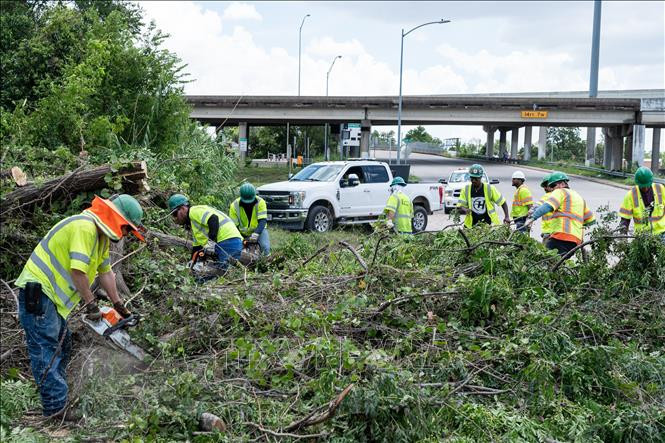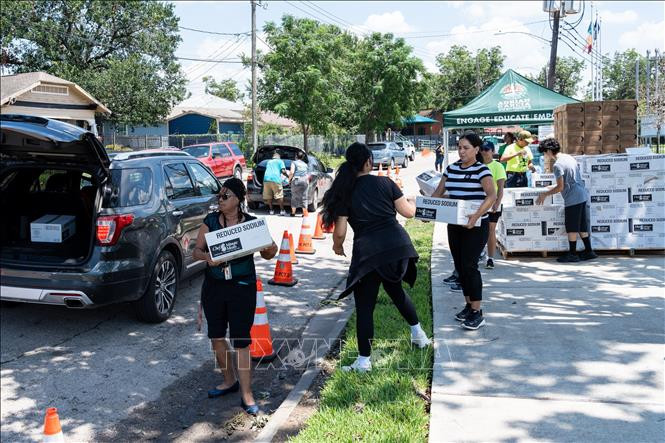Four days after Hurricane Beryl caused widespread flooding, about 1 million households in the US state of Texas are still without power amid hot weather.

By the morning of July 11, more than half of CenterPoint Energy’s customers, the state’s largest electricity provider, had power restored. But efforts to restore power were facing challenges, especially in Freeport, Texas’ largest energy hub. Continued heavy rains further delayed the restoration effort.
However, most oil and gas companies resumed operations after the storm passed. Freeport LNG, the third-largest US liquefied natural gas (LNG) producer, began processing small amounts of gas on July 11.
On the same day, leaders of Caribbean island nations called for financial assistance after Hurricane Beryl caused severe damage beyond their ability to pay. At the same time, they called for easing of lending conditions to cope with the increasingly serious impacts of climate change.
Speaking at a conference, Grenada Prime Minister Dickon Mitchell and Saint Vincent and the Grenadines Prime Minister Ralph Gonsalves both said the damage caused by Hurricane Beryl was in the hundreds of millions of dollars. They warned that the people of their two countries could not afford another disaster.
The Atlantic hurricane season runs from June to November. However, Beryl, the first storm of the season, quickly strengthened into a Category 5 hurricane - the strongest on the five-level Saffir-Simpson hurricane scale.

The superstorm hit the Cayman Islands, swept through Jamaica, Grenada, Saint Vincent & Grenadines, killing 11 people, collapsing homes, structures and causing extensive property damage. In Grenada and Saint Vincent & Grenadines alone, an estimated 10,000 people were left homeless by Hurricane Beryl, making them particularly vulnerable.
After downgrading, Hurricane Beryl continued to attack the southern United States, killing at least 8 people, leaving nearly 3 million homes and businesses without power; and more than 1,100 flights were canceled.